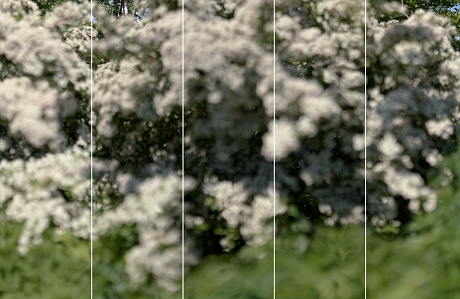
Hiryczuk / Van Oevelen Elodie Hiryczuk Sjoerd van Oevelen
2021
The photographic work Gaze Multiple – Hawthorn (2021) comprises five vertical panels presented parallel to each other in a composition inspired by East Asian folding screens.

Stephan Keppel, 'Hard Copies', Camera Austria, Graz, Installation view by Markus Krottendorfer., 2021
Taco Hidde Bakker Stephan Keppel
2021
Hard Copies was a solo exhibition by visual artist Stephan Keppel curated by Taco Hidde Bakker. The exhibition was held at Camera Austria in Kunsthaus Graz (AT), 12.6–15.8.2021.
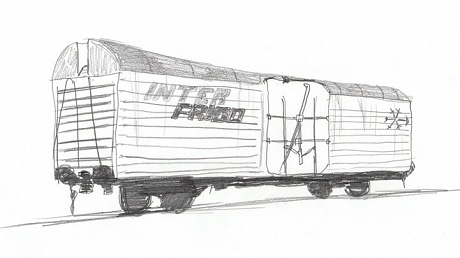
Frank Bloem
2021
The Embassy of the North Sea commissioned fragrance designer Frank Bloem to collect 40 scents from and around the North Sea.
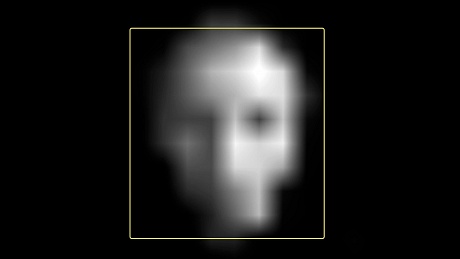
The Reflection of the Man, video still, Martine Stig, 2021
Martine Stig
2021
In "The Reflection of the Man" —a video essay—, I grapple the meaning of Human in a hybrid world. Deploying and reflecting on ubiquitous technologies like face recognition software, I explore the act of seeing, beyond the explorative and embodied act.

Art for Machines (art talk), Martine Stig, 2020
Martine Stig
2020
When celluloid was replaced by sensors twenty years ago, the photographic image became bilingual. The digital image, now being shot, shown, stored and shared by one device, lives up to (and beyond) expectations of analogue mnemonic technologies.
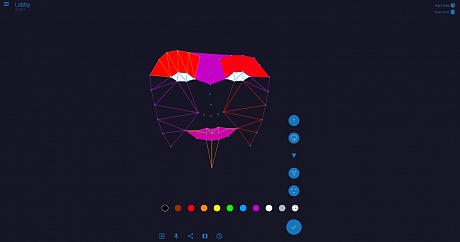
WeAlgo, screenshot, Martine Stig, 2020
Martine Stig
2020
WeAlgo is a new way of meeting online, a playground where you create your - fluid - identity. WeAlgo uses facial recognition algorithms to protect our screen privacy, instead of violating it. It lets you move freely through a truly shared space. A ball masqué, anonymous yet truly there.
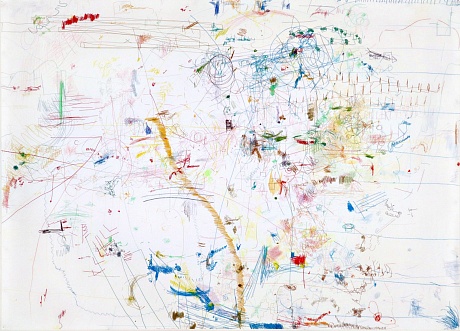
Stack of uncompleted times, Murat Yildiz, 2019
Murat Yildiz
2020
In the process of ‘Non-eye centric’ drawings I put myself in a passive state by closing my eyes. I close my eyes because I want to get away from the dominance of my eyesight and let other eyes join and make decisions.
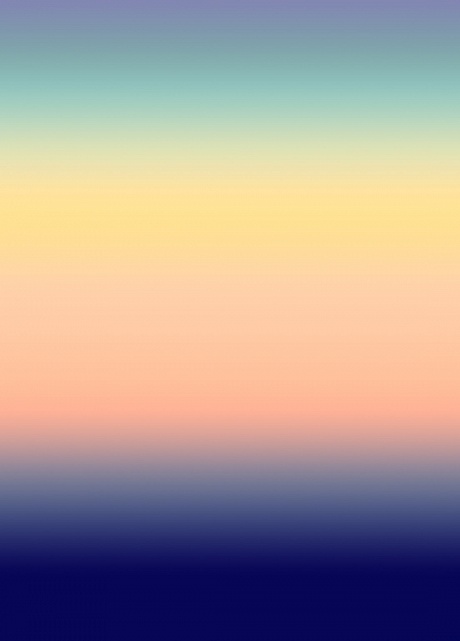
Radiance, Mustapha Azeroual, 2019
Mustapha Azeroual
2020
Radiance is a work on the recording of colour in photography, based on the assumption that the photographer has only a limited control over the colours he records and reproduces photographically due to the very nature of the medium.
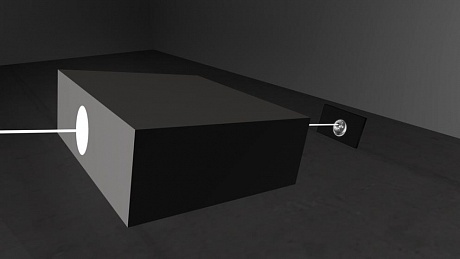
Glued Eye, Peter Bogers, 2020
Peter Bogers
2020
The installation Glued Eye consists of two black and white video images, one video projector and two thin (2 mm) illuminated fibre lines. A large projection shows images of moving objects or people that are fixed in one place on the wall by means of a sophisticated tracking technique.
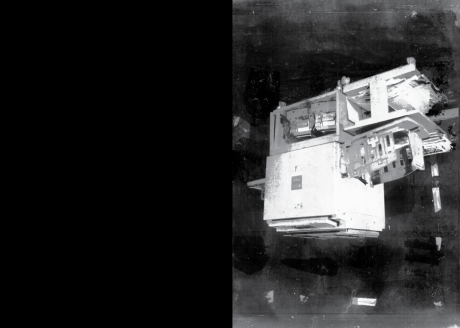
'Tohu wa-Bohu', Extrapool, Taco Hidde Bakker, 2019
Taco Hidde Bakker
2019
Tohu wa-Bohu is a collaborative artist’s book exploring the interface of photography and risograph printing. It is also an experiment in editing as each participating artist printed their pages, which were later brought together as signatures and bound as a book.
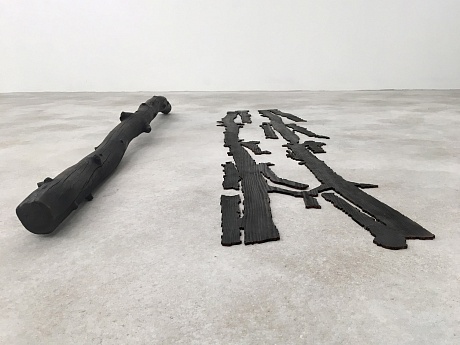
Unfolded (Branch), Spiros Hadjidjanos, 2019
Spiros Hadjidjanos
2019
This work starts from a 3D-scan of a sculptural object, which is then ‘unfolded’ digitally. This leads to a new series of digital images which are then sent to a laser cutter, creating a new ‘unfolded’ version of the original sculptural object.
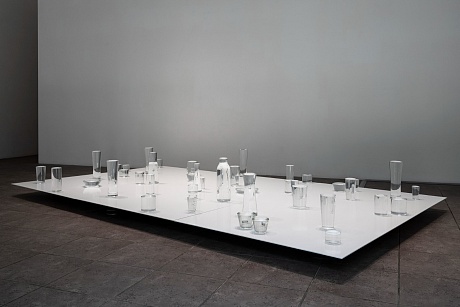
Phantom Power, Yoichi Kamimura, 2019
Yoichi Kamimura
2019
In 'Phantom Power' various types of glass containing water stand together on top of a metal plate. The water is ice collected by Kamimura from drift ice when he was making field recordings of it in the Sea of Okhotsk from February to March 2019, and which has been artificially melted.
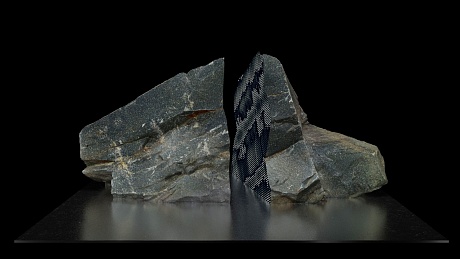
Core 4, digital animation, Nicolas Sassoon & Rick Silva, 2019
Nicolas Sassoon & Rick Silva
2019
CORES is a collaborative project initiated in 2019 by artists Nicolas Sassoon (Vancouver, BC) and Rick Silva (Eugene, OR) focusing on 3D renderings of altered geological specimens.
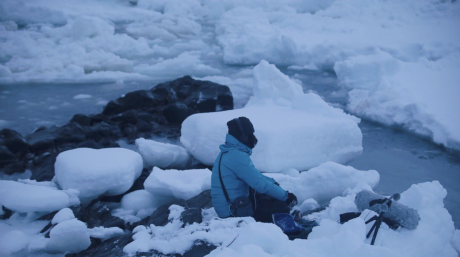
Phantom Power (process), Yoichi Kamimura, 2019
Yoichi Kamimura
2019
"The water is ice collected by Kamimura from drift ice when he was making field recordings of it in the Sea of Okhotsk from February to March 2019, and which has been artificially melted."

'The main suspect of the Reichstag fire, Marinus van der Lubbe, at the start of the process in Leipzig.', Reporters / Associated Press, Photographer unknown, 1933
Frank van der Stok
2019
Kill our Icons pleas for a rethinking of the iconic photos that are part of our collective memory. Kill our Icons proposes alternative images without apparent iconic value which indirectly tell more pregnant stories than the types of images calling for linear cause-and-effect explanation.
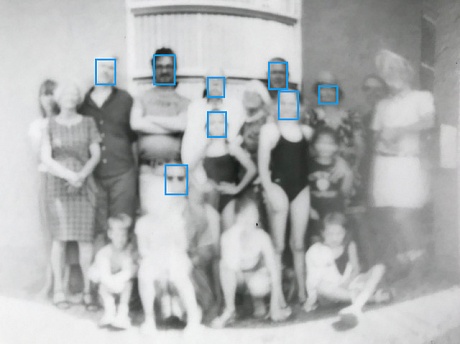
The Photo Object, Martine Stig, 2019
Martine Stig
2019
The Photo Object is a visual experiment in which I take pinhole photos and then pass them through the face detection and image recognition software.
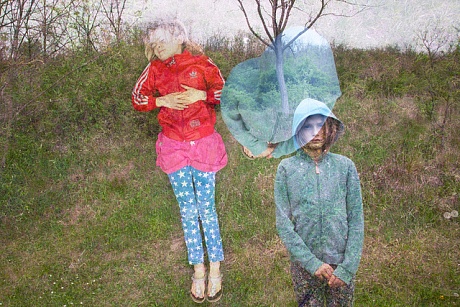
Sync., Martine Stig, 2019
Martine Stig
2019
Sync, 2019 Holiday photos in a rural setting, synchronously photographed from eye level and from the sky. The images, double projections, indicate the presence of the "eye in the sky".
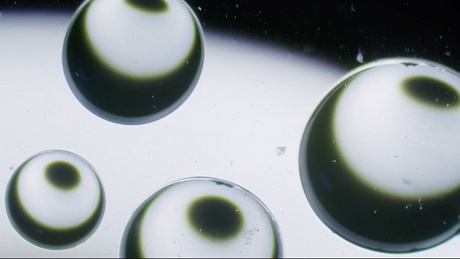
Reclaiming Vision, Marjolijn Dijkman, Toril Johannesen, 2018
Toril Johannessen Marjolijn Dijkman
2018
Both Dijkman and Toril Johannessen (1978, NO) * are interested in the mediation of nature and the kind of relationships it evokes, for instance through scientific paradigm shifts. Liquid Properties, a collaboration between the two artists …
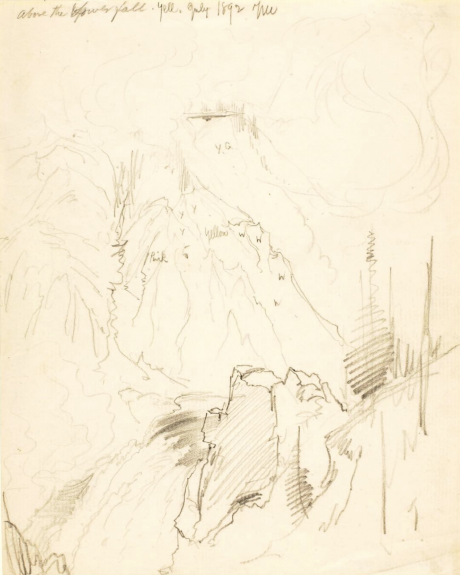
Lookout Point, The Grand Canyon of the Yellowstone, Hans Gremmen, 2018
Hans Gremmen
2018
Graphic designer, publisher and artist Hans Gremmen (1976, NL) has a special interest in the grandeur of the American landscape.
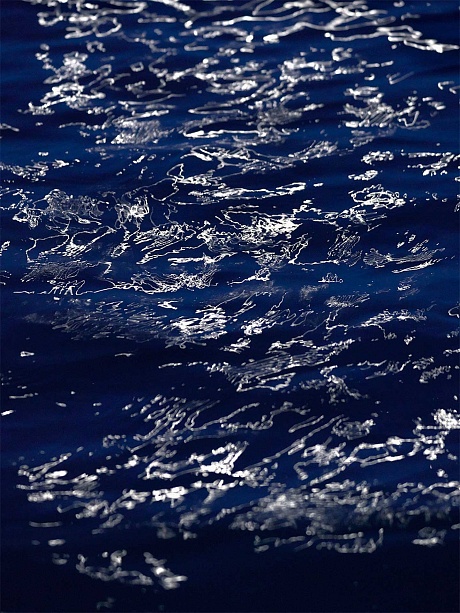
One Moon in a Thousand Seas, Hiryczuk / Van Oevelen, 2018
Hiryczuk / Van Oevelen Elodie Hiryczuk Sjoerd van Oevelen
2018
One Moon in a Thousand Seas depicts the infinite play of moonlight on the sea surface. The photos show successive reflections of the moon on the water, from a single point of light to increasingly intricate figures and characters, depending on the swell of the sea.
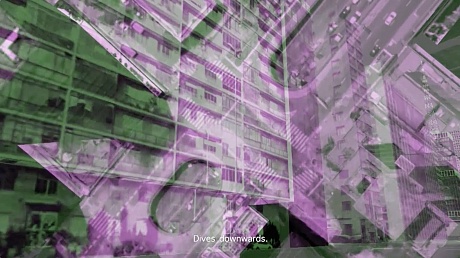
Still Walking in the City, Martine Stig, 2018
Martine Stig
2018
Walking in the City, HD, 11:42, 2018, with a text by Basje Boer. A short science fiction movie showing the city of Sao Paulo through a vertical stereoscope, uncovering different notions of perception and power.
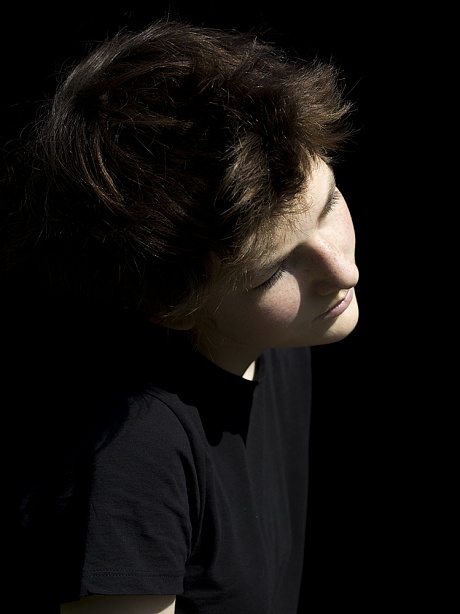
Profiles #3, Martine Stig, 2017
Martine Stig
2017 – 2018
Profiles is a study of the human facial profile, with its characteristic shape that leans on a gaze or camera at eye-level. The human depicted from the human perspective; anthropocentrism at its best.
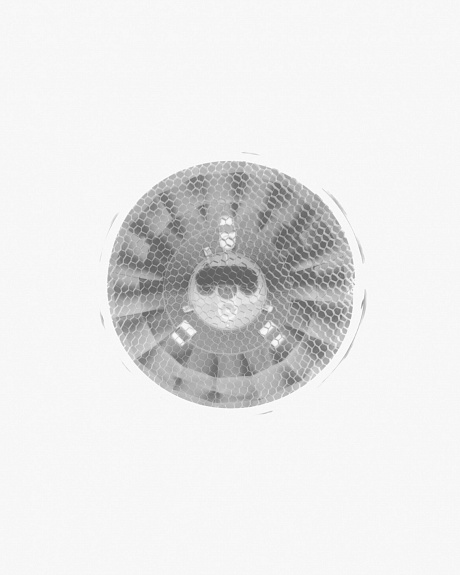
Echo#1, Mustapha Azeroul, 2015
Mustapha Azeroual
2017
The Echo series is a continuation of the ELLIOS project conducted in partnership with LESIA (Pôle d’Observation du soleil de l’Observatoire de Paris-Meudon) on a photographic study of the sun.
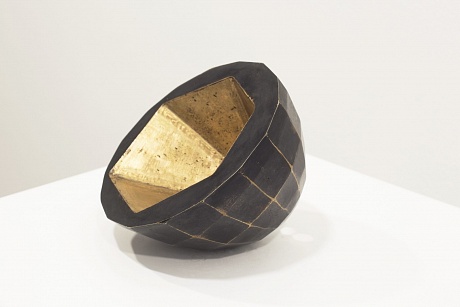
Echo/ Corps Noir #1, Mustapha Azeroual, 2017
Mustapha Azeroual
2017
Through this work, Mustapha Azeroual tends to materialize the light, condition of the visible, paradoxically invisible.
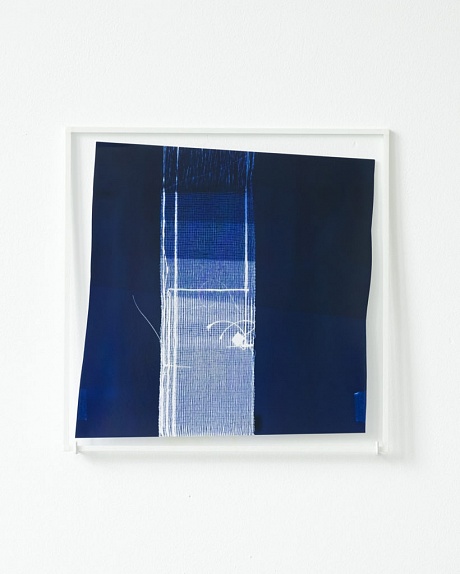
While weaving a Liar’s cloth (contact prints), Gwenneth Boelens, 2017
Gwenneth Boelens
2017
While reading on the history of textiles, the artist came across a small reproduction of a ‘liar’s cloth’ from the late 19th century made by the Ashanti (Ashanti Empire 1701–1957, present-day southern Ghana).

It, video still, Anouk De Clercq, Tom Callemin, 2017
Anouk De Clercq Tom Callemin
2017
For 'It' , Video, 13 min., Anouk De Clercq (1971, BE) collaborated with artist-photographer Tom Callemin (1991, BE). Their respective artistic views hover in a black-and-white world, in the realm of the scarcely possible and the barely visible, fascinated by what light is able to reveal.
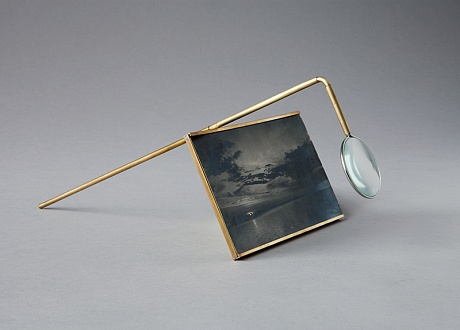
Device No. 5 (The Third Sun), Juuso Noronkoski, 2017
Juuso Noronkoski
2017
Juuso Noronkoski (1983, FI) makes mixed-media installations in which he combines photography, video, sculpture, and text. He experiments with expanding the flatness of photography into the plasticity of a sculptural object or installation.
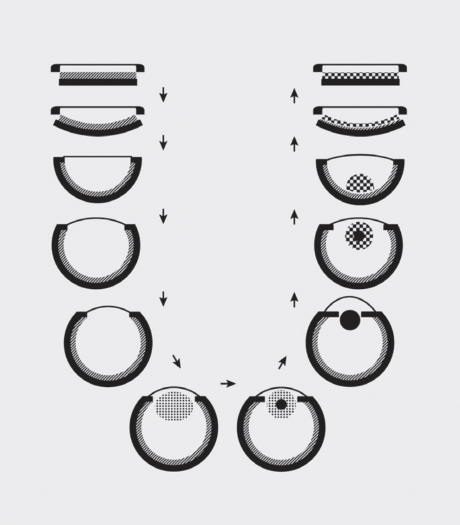
The Invention and Conclusion of the Eye, Toril Johannessen, 2017
Toril Johannessen
2017
Audio play, 38:40 min., multichannel playback, stage light, diagram, paper sculptures. Toril Johannessen (1978, NO) engages in methods and source material from ‘specialist fields of knowledge’ such as science, visual perception studies, linguistics, and the occult.
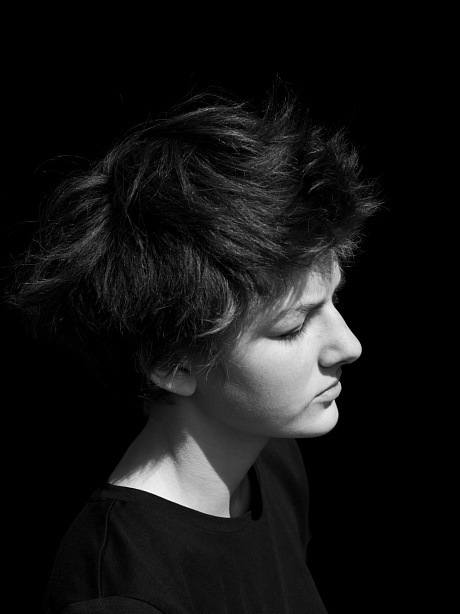
Study for Profiles, Martine Stig, 2017-18
Martine Stig
2017
Study for Profiles (2017) Profiles is a study of the human facial profile, with its characteristic shape that leans on a gaze or camera at eye-level. The human depicted from the human perspective; anthropocentrism at its best.

Bette#2, Martine Stig, 2017
Martine Stig
2017
In Vertigo I investigate the influence of technological progress on the photographic image. Drones and satellites extend our senses, mobile mapping increases our viewing space. "Eye level" gives way to "machine vision" (or does a hybrid form arise?).
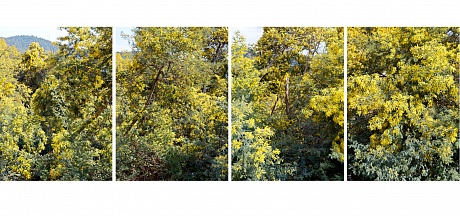
Shadow - Light - Reflection, Hiryczuk/ Van Oevelen, 2013
Hiryczuk / Van Oevelen Elodie Hiryczuk Sjoerd van Oevelen
2017
Shadow–Light–Reflection is an ongoing photographic series consisting of diptychs and quatychs. In this series photographic sequences are employed to reconstruct a landscape – for instance a cedar forest or a group of wild mimosa trees – from a multiplicity of viewpoints.
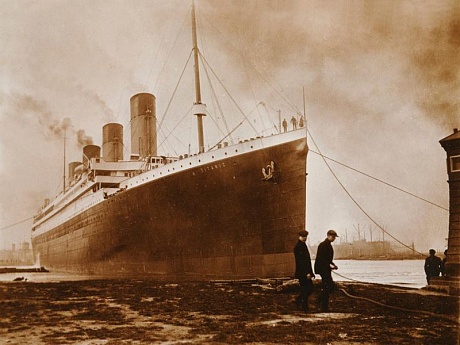
What Images can do, Found footage from Senan Molony’s documentary Titanic: The New Evidence, 1912
Frank van der Stok
2017
Journalist Senan Molony recently came across an amazing discovery hidden in an attic in England for more then 100 years: a collection of pictures taken of the Titanic by the shipbuilding firm before it left the shipyard.
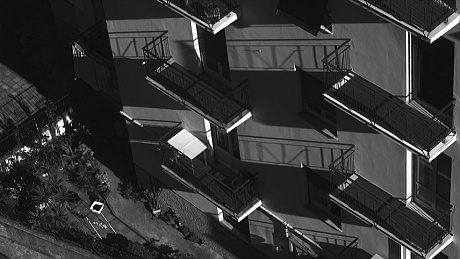
still Planar (2017, HD, 8.54”), Martine Stig, 2017
Martine Stig
2017
Planar, a black & white film, shot from a balcony in Genua, scans the surface of the city. Playing with connotations of surveillance drones and ‘Film Noir’ the long lens seems to act on human presence but follows nobody.
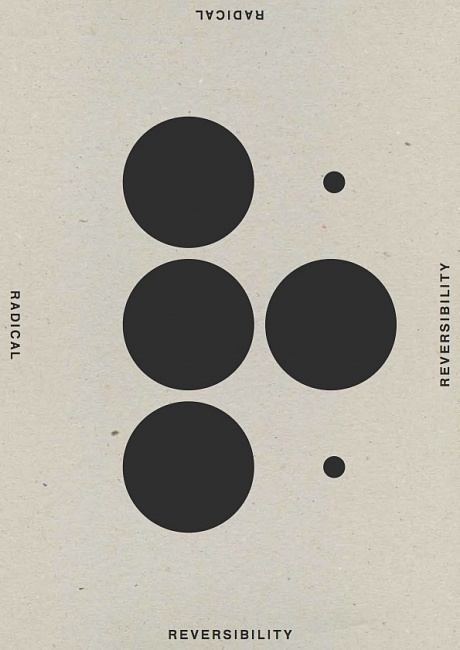
Radical Reversibility manifesto, design Hans Gremmen, 2017
Martine Stig Elodie Hiryczuk Sjoerd van Oevelen Frank van der Stok Hans Gremmen
2017
On the occasion of our launch we will issue a printed manifesto, designed by Hans Gremmen along with the first RR special editions of work by Hiryczuk/ Van Oevelen, Martine Stig, Stephan Keppel and El Lissitzky. Interview by Daria Tuminas.
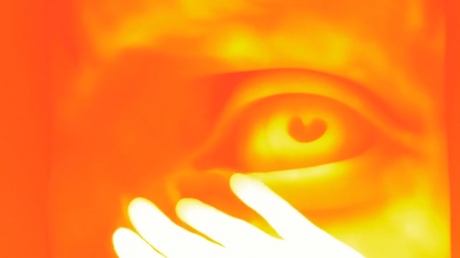
The Radiance of Sensible Heat, Sema Bekirovic, 2016
Sema Bekirovic
2016
Filmed with a thermal camera we see a hand touching objects in the plaster sculpture depot of the Rijksakademie in Amsterdam. Focusing on the transference of body heat from hands to objects, bringing them into focus as they light up with the heat.
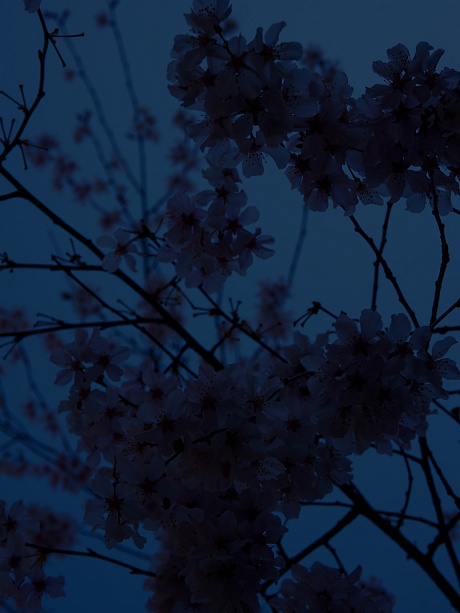
Peaks of Present, Hiryczuk/ Van Oevelen, 2016
Hiryczuk / Van Oevelen Elodie Hiryczuk Sjoerd van Oevelen
2016
This is text_snippet DUMMY text. You are seeing this here, because no real data input exists for this item. Praesent elementum metus nulla, ut aliquam mauris consequat et. Cras pellentesque sed ipsum blandit varius. Phasellus sit amet tellus non elit pellentesque luctus.
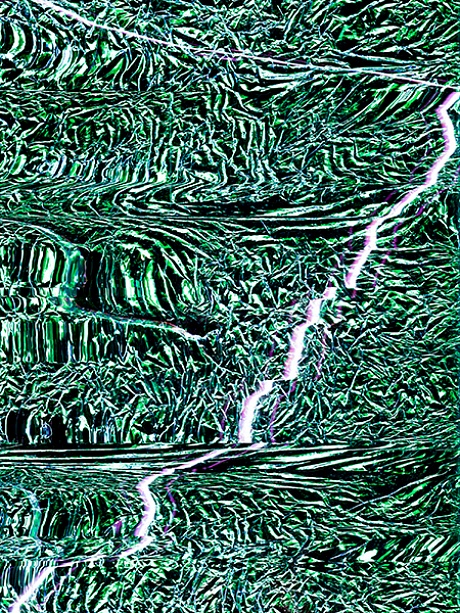
light field 104, taisuke koyama, 2017
Taisuke Koyama
2015 - ongoing
This series is a work documenting the input light sources of handheld scanner and flatbed scanner. The crumpled iridescent cellophane is inserted between the two lights to visualize the information of light itself.
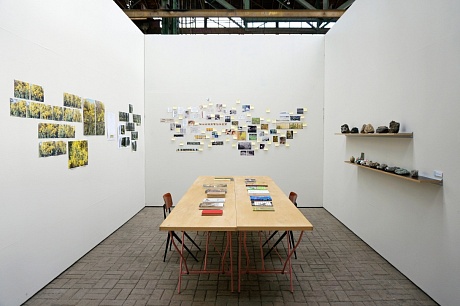
Hiryczuk / Van Oevelen Elodie Hiryczuk Sjoerd van Oevelen
2015
The Detached Gaze presents a collection of images and texts Hiryczuk / Van Oevelen have collected during their artistic research over the past 5 years.

Nicéron, La Perspective Curieuse, 1663, Nicéron, 1663
Hiryczuk / Van Oevelen Elodie Hiryczuk Sjoerd van Oevelen
2015
From a philosophical point of view the thoughts behind Pangeometry share many resemblances with Eastern concepts in which reality is not exclusively considered from a human perspective.

Sceneries – Man Reading by a window, Hiryczuk/ Van Oevelen, 2007
Hiryczuk / Van Oevelen Elodie Hiryczuk Sjoerd van Oevelen
2014
Photography is generally understood as a means to produce images of reality. The analogy between the optical functioning of the photographic lens and our human eye even makes us believe that photography generates an accurate representation of what we see.
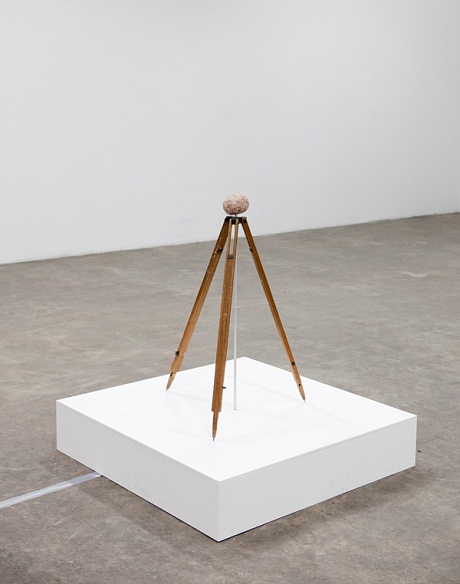
Cognitive shift, Juuso Noronkoski, i.c.w. Mikko Rikala, 2014
Juuso Noronkoski
2014
Cognitive Shift (2014) [tripod, stone, 1rpm motor, microphone, speakers, HD-video, 1-minute loop. In collaboration with Mikko Rikala (1977, FI)]
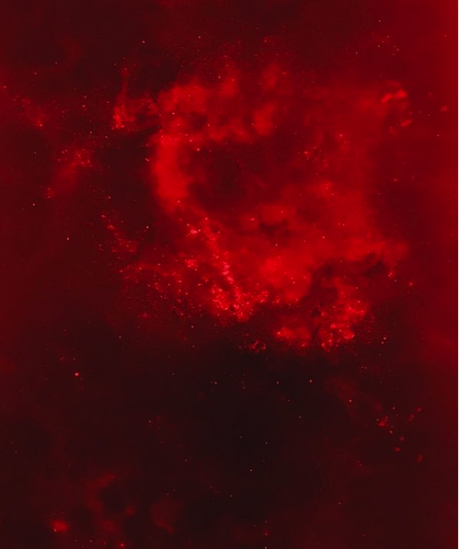
Unfixed Galaxies, Sema Bekirovic, 2018
Sema Bekirovic
2013
Unfixed analogue photographic prints (80×60cm), framed behind red glass. A photogram is developed but purposely left unfixed, so the print remains sensitive to light.
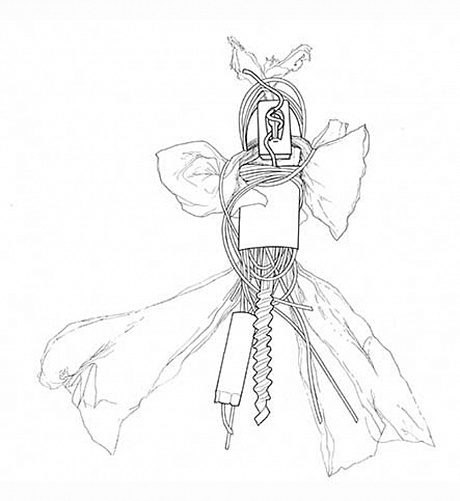
Baltic Sea Plastique: Analytical Drawings, Tuula Närhinen, 2013
Tuula Närhinen
2013
Tuula Närhinen (1967, FI) examines the visual potential of natural events. She constructs numerous visual interfaces enabling us to move beyond the obvious and to trace invisible and unimaginable natural phenomena.
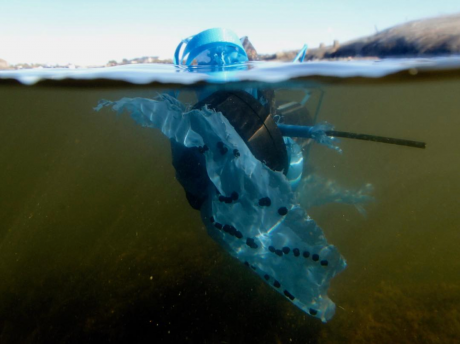
Baltic Sea Plastique, Tuula Närhinen, 2013
Tuula Närhinen
2013
Tuula Närhinen (1967, FI) examines the visual potential of natural events. She constructs numerous visual interfaces enabling us to move beyond the obvious and to trace invisible and unimaginable natural phenomena.
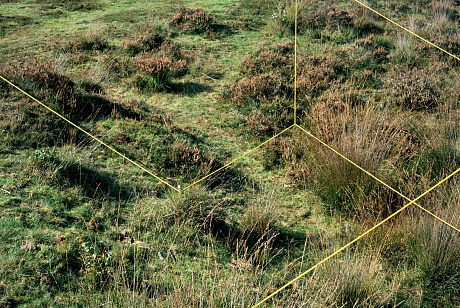
Field Experiments, Hiryczuk / van Oevelen, 2011
Hiryczuk / Van Oevelen Elodie Hiryczuk Sjoerd van Oevelen
2011
In photographs of nature scenes, geometric figures have been stretched with yellow ropes to mark a space in the landscape.
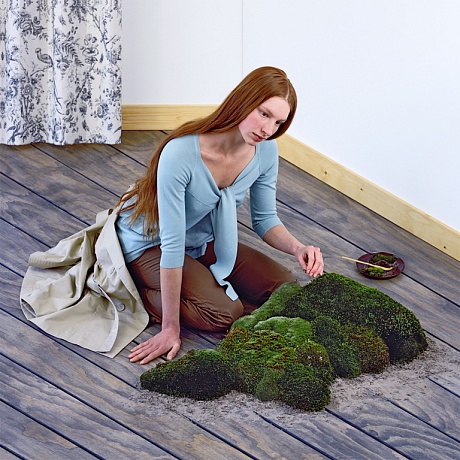
Girl Making a Model of a Landscape, Hiryczuk / Van Oevelen, 2005
Hiryczuk / Van Oevelen Elodie Hiryczuk Sjoerd van Oevelen
2005 - 2007
In the series Sceneries the optical perspective of photographic images is manipulated to create a spatial illusion.
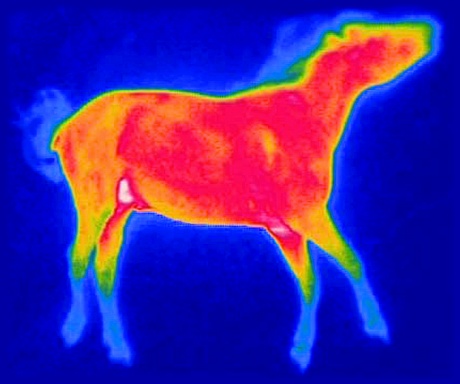
Entropy, Terike Haapoja, 2004
Terike Haapoja
2004
The video installation Entropy shows in life size the cooling down of a horse’s body after its death, recorded with an infrared camera. The original recording of 9 hours has been edited to a 25 minutes loop.
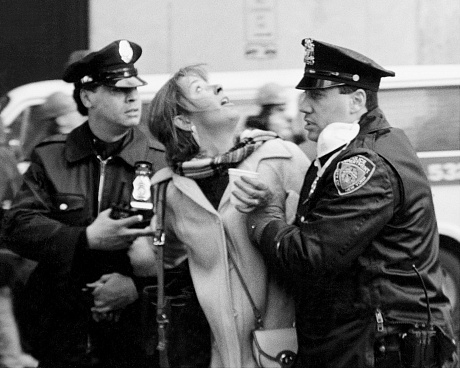
Kill our Icons, Credits: Getty Images / Ken Murray, 1993
Frank van der Stok
1993
Kill our Icons pleas for a rethinking of the iconic photos that are part of our collective memory. Kill our Icons proposes alternative images without apparent iconic value which indirectly tell more pregnant stories than the types of images calling for linear cause-and-effect explanation.
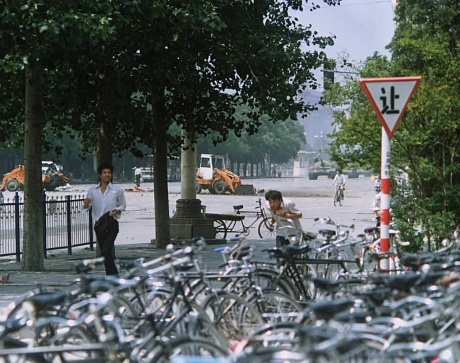
The other Angle, Credit Terril Jones/Associated Press, 1989
Frank van der Stok
1989
In this Post-Truth era, almost every photograph seems to be speculative by nature.
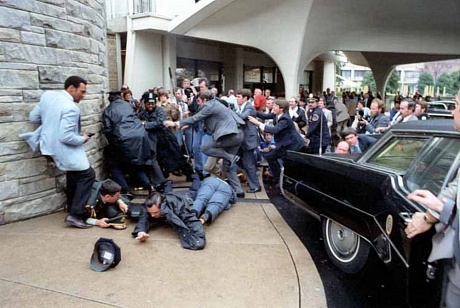
Sebastiao Salgado, 1981
Frank van der Stok
1981
In this Post-Truth era, almost every photograph seems to be speculative by nature.
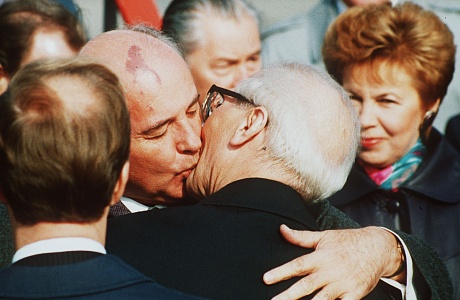
The Kiss of Death, Reporters / Associated Press / Boris Yurchenko, 7 October 1989
Frank van der Stok
1979
Kill our Icons pleas for a rethinking of the iconic photos that are part of our collective memory. Kill our Icons proposes alternative images without apparent iconic value which indirectly tell more pregnant stories than the types of images calling for linear cause-and-effect explanation.
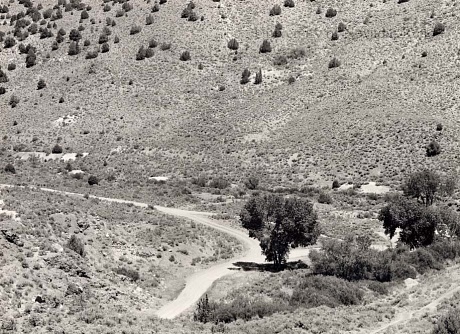
Second View: The Rephotographic Survey Project, Timothy O'Sullivan, 1868
Frank van der Stok
1977–79
Radical Metamorphoses aims at creating unseen and unprecedented insights that may follow from the sequencing of two (or more) images, in which transformations took place overtime.
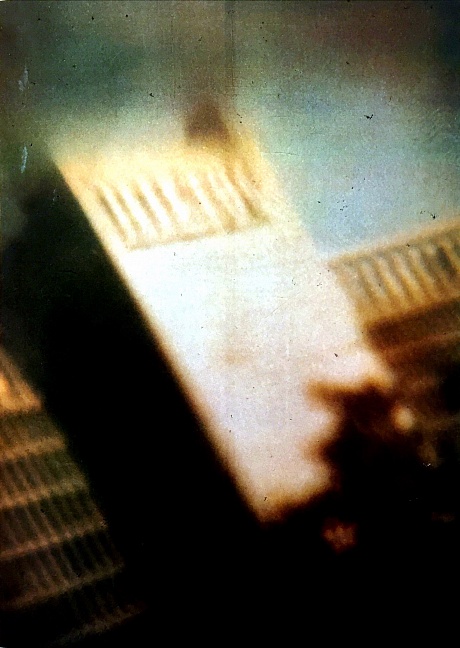
Hilton Hotel, Ted Serios, ca. 1967
Frank van der Stok
1967
A thought photograph by Ted Serios (ca. 1967), taken from the book: ‘Photographs of the Unknown’. Serios claimed the ability to project mental images onto photographic film, sometimes with the lens cap still on and sometimes with no lens at all on the camera.
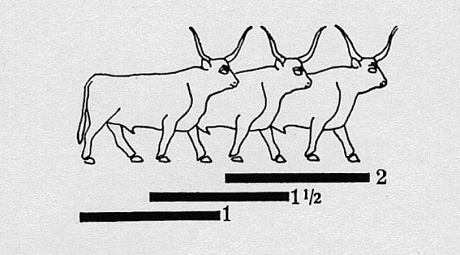
A. and Pangeometry (image 2), El Lissitzky, 1925
El Lissitzky
1925
Perspective is nothing but a convention for representing distance, and though the term is sometimes limited to mean the type of projection generally used in the West, it properly includes any and all devices for representing three dimensions in tw …
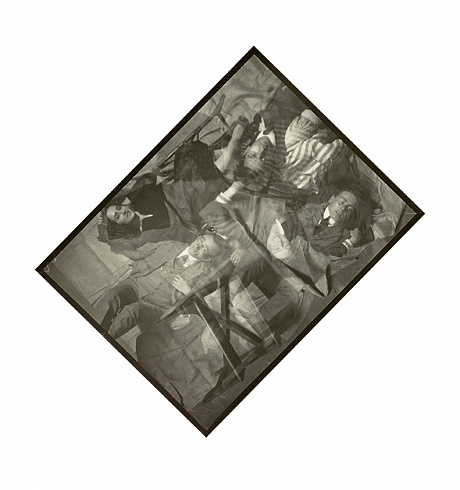
in the studio, el lissitzky, 1929
El Lissitzky
1923
El Lissitzky's somersaulting multiple exposure of himself and several friends in his studio was made in 1923, probably when he was living in Hannover at the invitation of Kurt Schwitters.
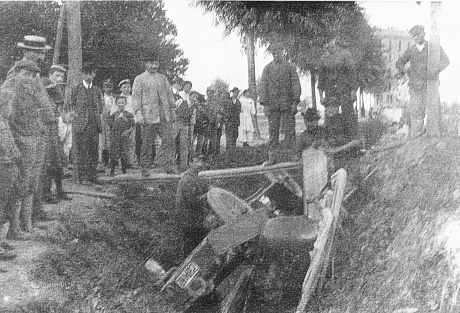
Marinetti's vehicle in a ditch, Unknown Photographer, 1908
Frank van der Stok
1908
Op 1 mei 1909 werd de Nederlandse Tijd ingevoerd. Op zoek naar de vraag hoe dat verwoord wordt in de krant, zocht ik in - nota bene - De Tijd de dag eraan voorafgaande (30-04-1909), maar die werd geheel beheerst door de geboorte van Prinses Juliana.
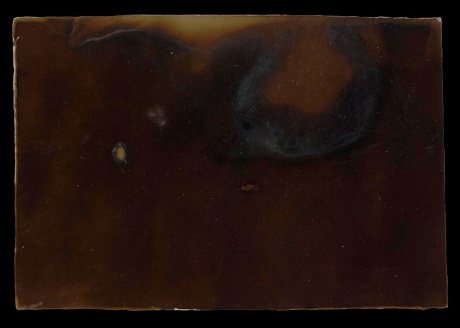
Celestographs, August Strindberg, 1893
August Strindberg
1893
Sensitized photographic plates directly exposed to the night sky by August Strindberg. This automated process excludes the viewer (as subject), the lens (as medium), and a concrete motif (as object), but opens new registers of abstract, speculative looking and thinking.
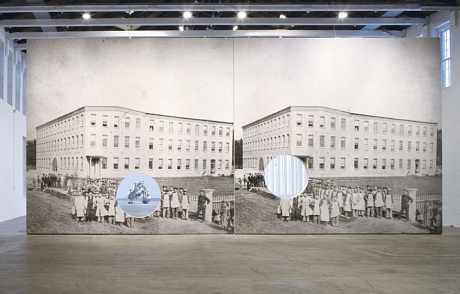
2009
Frank van der Stok
1875
In this Post-Truth era, almost every photograph seems to be speculative by nature.
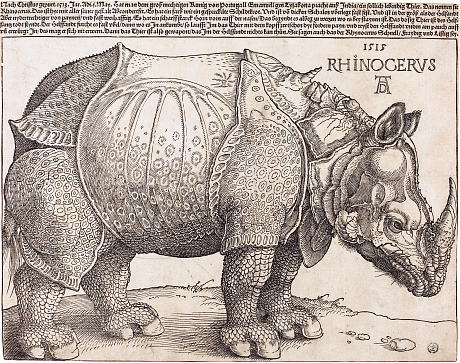
Rhinoceros, Albrecht Dürer, 1515
Frank van der Stok
1515
When Albrecht Dürer produced this woodcut 500 years ago he could never have imagined that it would be cause for the lively debate about the odds at which fact and fiction are now related.
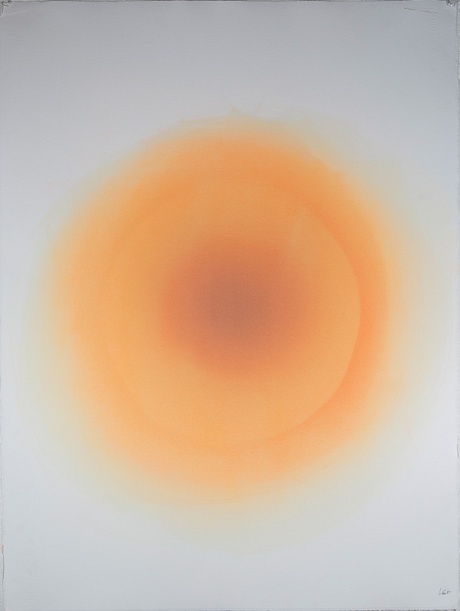
Monade, Mustapha Azeroual,
Mustapha Azeroual
Monad: [In Leibniz] A substance that is inanimate, impervious to all external action, but undergoing internal changes internal changes obeying the principles of appetition and perception and which constitutes the last and simplest element of beings and things (v. entelechy)
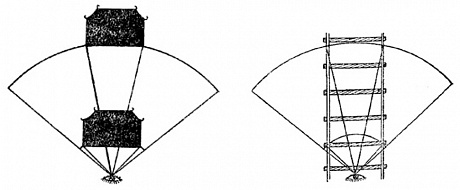
A house close to and far from the Eye; A railway track close to and far from the Eye,
Benjamin March
The most general criticism aimed at Chinese paintings by Westerners seems to be concerned with the representation of distance, and very often takes the form: Chinese paintings have no perspective. This is, of course, not only untrue, but it is not what the critic meant to say.
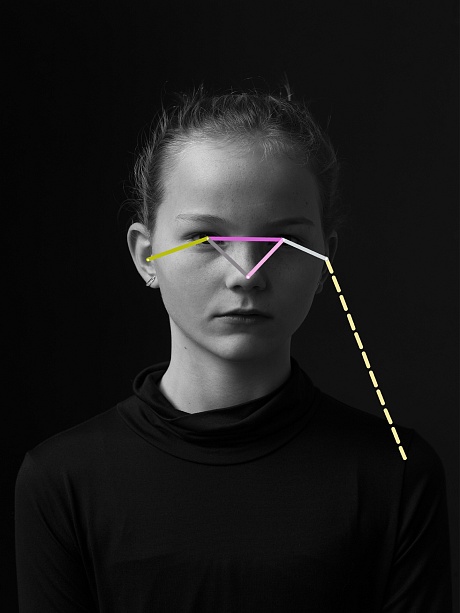
Through a Glass Darkly, Martine Stig, 2020
Martine Stig
Through a Glass Darkly (2020, black&white print, framed, screenprint on artglass) is a series of portraits of young girls. Black & white photography combined with coloured stripes and dots -the graphic language used in image recognition technology, grammar of machine vision.
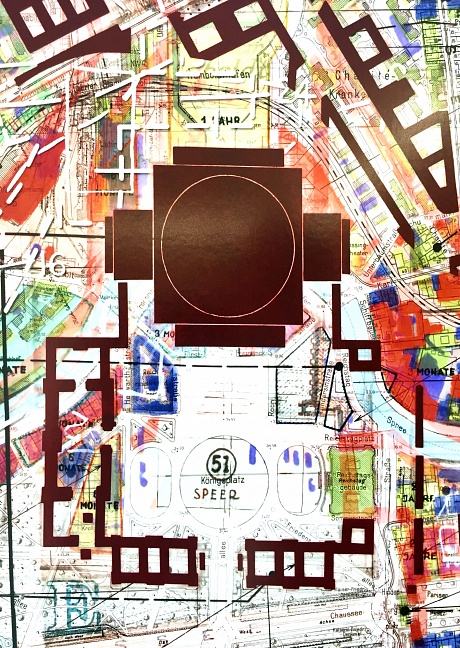
12650000, Gert Jan Kocken, 2011 - 2019
Frank van der Stok
Radical Metamorphoses aims at creating unseen and unprecedented insights that may follow from the sequencing of two (or more) images, in which transformations took place overtime.
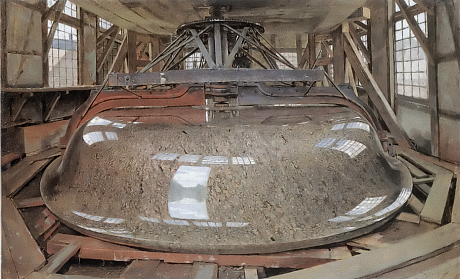
The Granite Dish in the Berlin Lustgarten, Johann Erdmann Hummel, 1831
Frank van der Stok
Some paintings and sketches of the late 18th and early19th centuries seemed to anticipate photographic techniques.
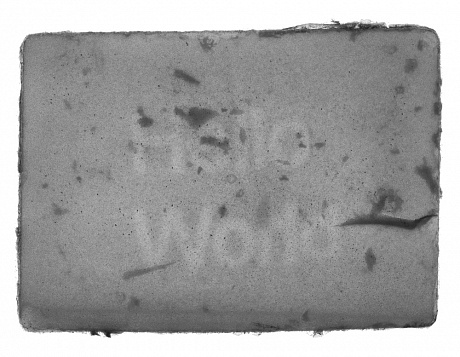
Hello World, Center for PostNatural History, loaned by the lab of Dr. Andy Ellington, 2006
Frank van der Stok
Escherichia coli is a bacteria found in the human gut and a “model organism” for scientific research around the world. The variety shown here was genetically engineered to be the first living photographic biofilm.

Mammoth Blood (still from the documentary Genesis 2.0), Christian Frei, 2018
Frank van der Stok
On the New Siberian Islands in the Arctic Ocean, hunters are searching for the tusks of extinct mammoths. In the thawing permafrost they happen upon an exceptionally well-preserved mammoth carcass, complete with blood and fur.
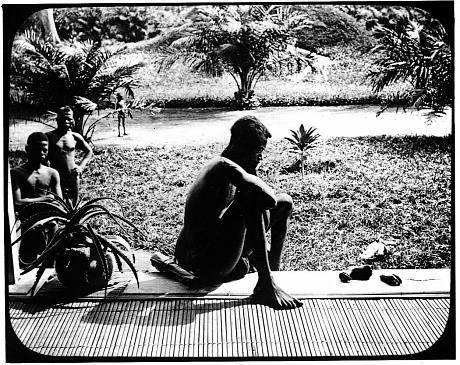
Nsala, Alice Seeley Harris, 1904
Frank van der Stok
After they were made public, these pictures forced people in Europe to face what was really happening and, under public pressure, in 1908 Congo was signed over the the Belgian state. It wouldn't gain independence until 1960. The power of these images added largely to put an end to colonial rule.
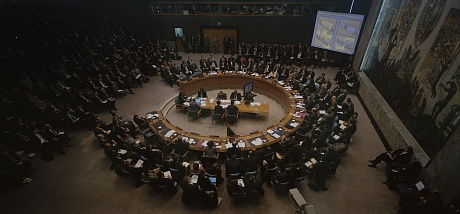
Hoax, Luc Delahaye (Courtesy: Luc Delahaye & Gallery Nathalie Obadia), 2003
Frank van der Stok
Radical Metamorphoses aims at creating unseen and unprecedented insights that may follow from the sequencing of two (or more) images, in which transformations took place overtime.
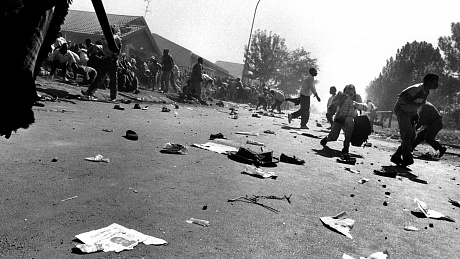
The Other Face of Apartheid, PictureNET Africa / Ken Oosterbroek, 1993
Frank van der Stok
Kill our Icons pleas for a rethinking of the iconic photos that are part of our collective memory. It proposes alternative images without apparent iconic value which indirectly tell more pregnant stories than the types of images calling for linear cause-and-effect explanation.
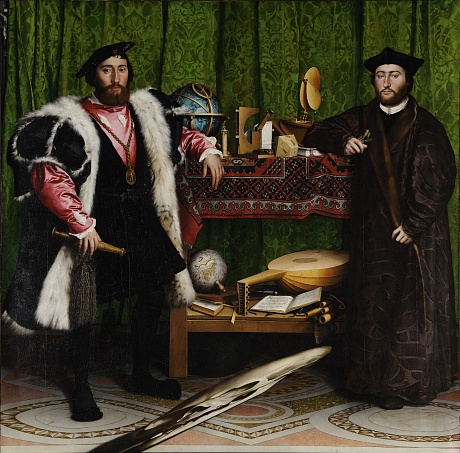
Frank van der Stok
In this Post-Truth era, almost every photograph seems to be speculative by nature.
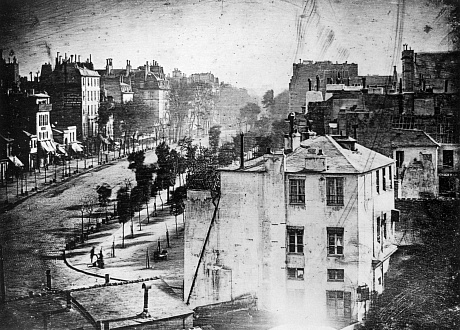
Phantom Image, Louis Jacques Mandé Daguerre (18 november 1787 - 10 july 1851), Wikimedia Commons, 1838
Frank van der Stok
Louis Daguerre, Boulevard du Temple, is believed to be the earliest photograph of people (1838). Because the image required an exposure time of over ten minutes, all the people, carriages, and other moving things disappear from the scene.
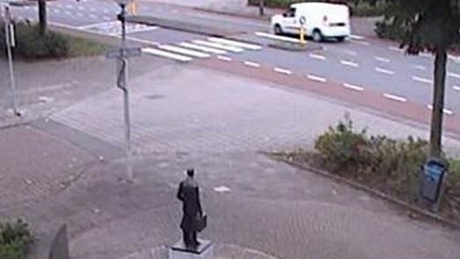
Frank van der Stok
In this Post-Truth era, almost every photograph seems to be speculative by nature.
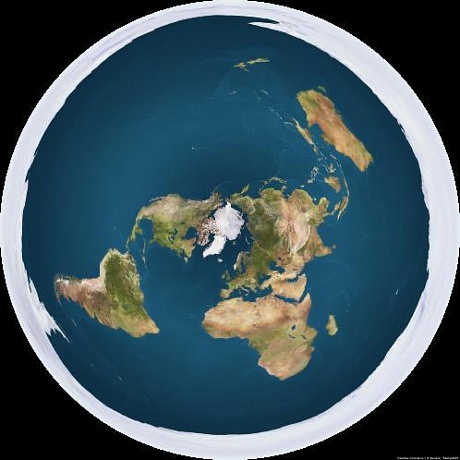
Flat Earth, Creative Commons,
Frank van der Stok
In this Post-Truth era, almost every photograph seems to be speculative by nature.
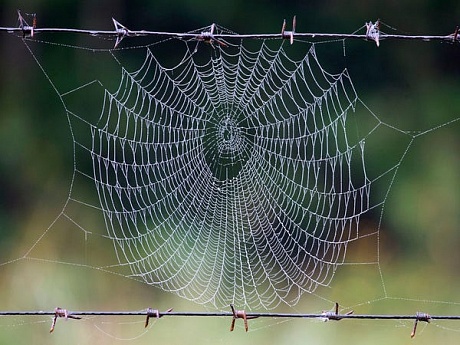
Vasily Fedosenko/Reuters,
Frank van der Stok
Radical Metamorphoses aims at creating unseen and unprecedented insights that may follow from the sequencing of two (or more) images, in which transformations took place overtime.
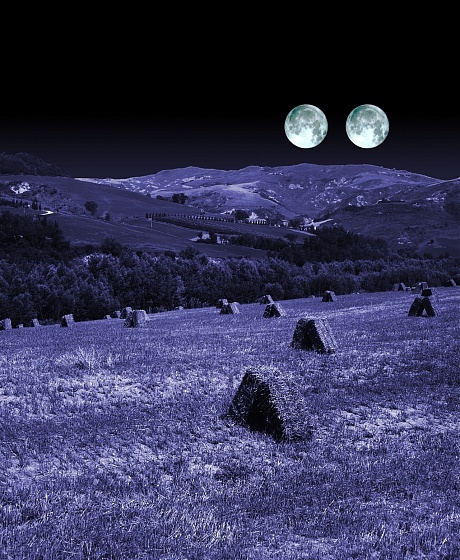
pnas.org,
Frank van der Stok
Radical Metamorphoses aims at creating unseen and unprecedented insights that may follow from the sequencing of two (or more) images, in which transformations took place overtime.
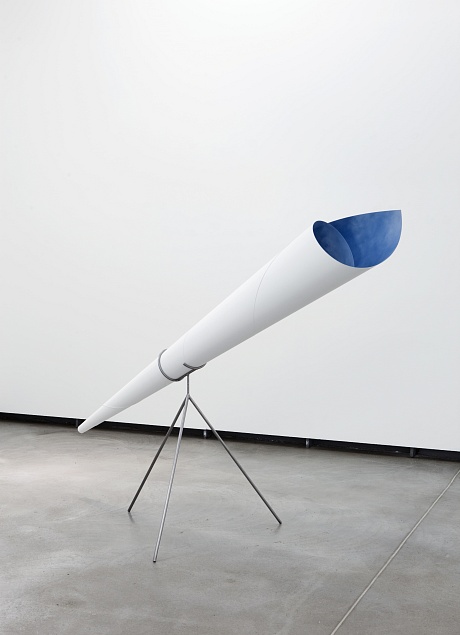
To See How the Moon Sees, Juuso Noronkoski, 2016
Juuso Noronkoski
On To See How the Moon Sees, a lyrical description of a photograph of the Earth taken from the moon unleashes a stream of magic recollections of how it used to be the reverse.
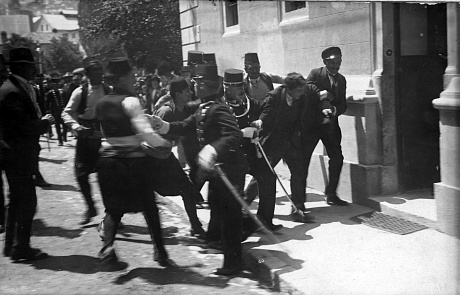
Credits: Wikimedia Commons / Photographer unknown, June 28, 1914
Frank van der Stok
Kill our Icons pleas for a rethinking of the iconic photos that are part of our collective memory. Kill our Icons proposes alternative images without apparent iconic value which indirectly tell more pregnant stories than the types of images calling for linear cause-and-effect explanation.
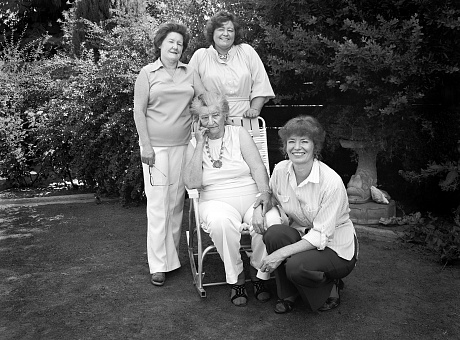
Bill Ganzell, June, 1979.
Frank van der Stok
Radical Metamorphoses aims at creating unseen and unprecedented insights that may follow from the sequencing of two (or more) images, in which transformations took place overtime.
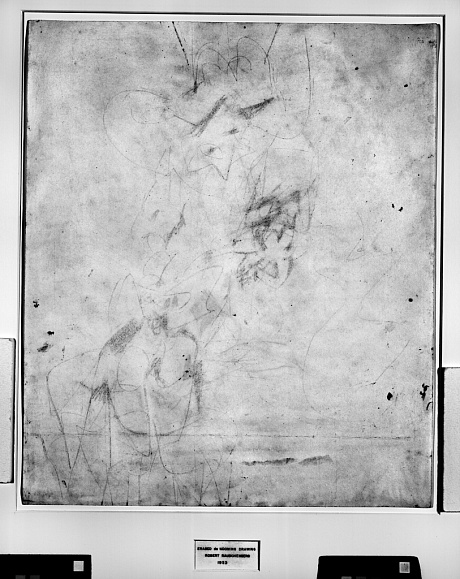
Courtesy of San Francisco Museum of Modern Art., 2010
Frank van der Stok
Radical Metamorphoses aims at creating unseen and unprecedented insights that may follow from the sequencing of two (or more) images, in which transformations took place overtime.
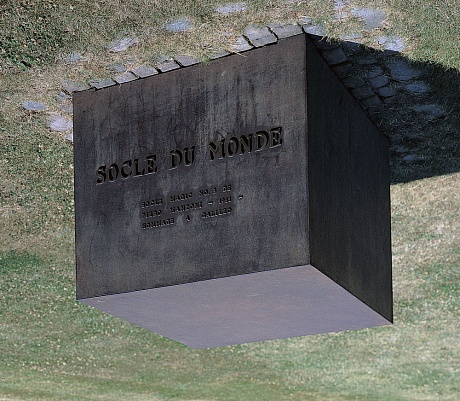
Frank van der Stok
In this Post-Truth era, almost every photograph seems to be speculative by nature.
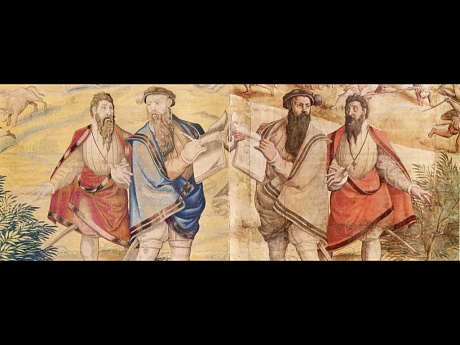
Lonnie van Brummelen @ Siebren de Haan, 2011
Frank van der Stok
In this Post-Truth era, almost every photograph seems to be speculative by nature.
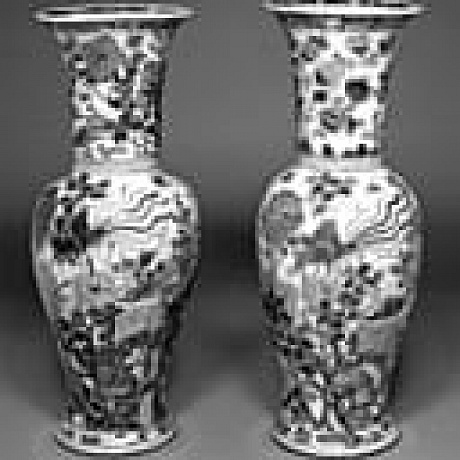
(1) A 5KB image as published in the Guardian of two of the three Qing vases that were crashed by museum visitor Nick Flynn in 2006 (2) Nick Flynn, photographed lying amid the shattered vases, 2006
Frank van der Stok
Radical Metamorphoses aims at creating unseen and unprecedented insights that may follow from the sequencing of two (or more) images, in which transformations took place overtime.
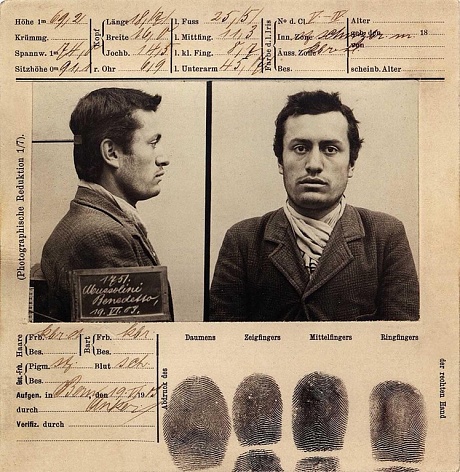
1903 / 1945
Frank van der Stok
In this Post-Truth era, almost every photograph seems to be speculative by nature.
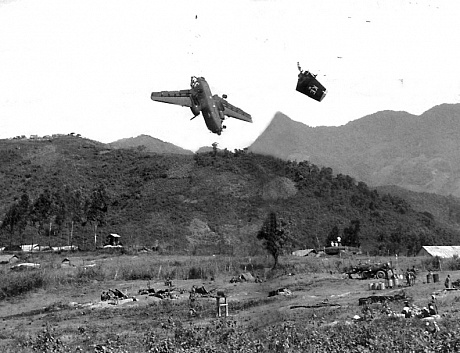
Hiromichi Mine, 1967
Frank van der Stok
Radical Metamorphoses aims at creating unseen and unprecedented insights that may follow from the sequencing of two (or more) images, in which transformations took place overtime.
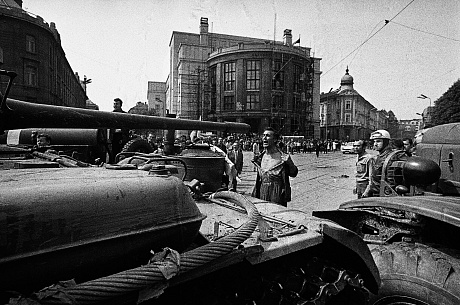
Kill our Icons, Picture-alliance / United-archives / Ladislav Bielik, 1968
Frank van der Stok
Kill our Icons pleas for a rethinking of the iconic photos that are part of our collective memory. It proposes alternative images without apparent iconic value which indirectly tell more pregnant stories than the types of images calling for linear cause-and-effect explanation.